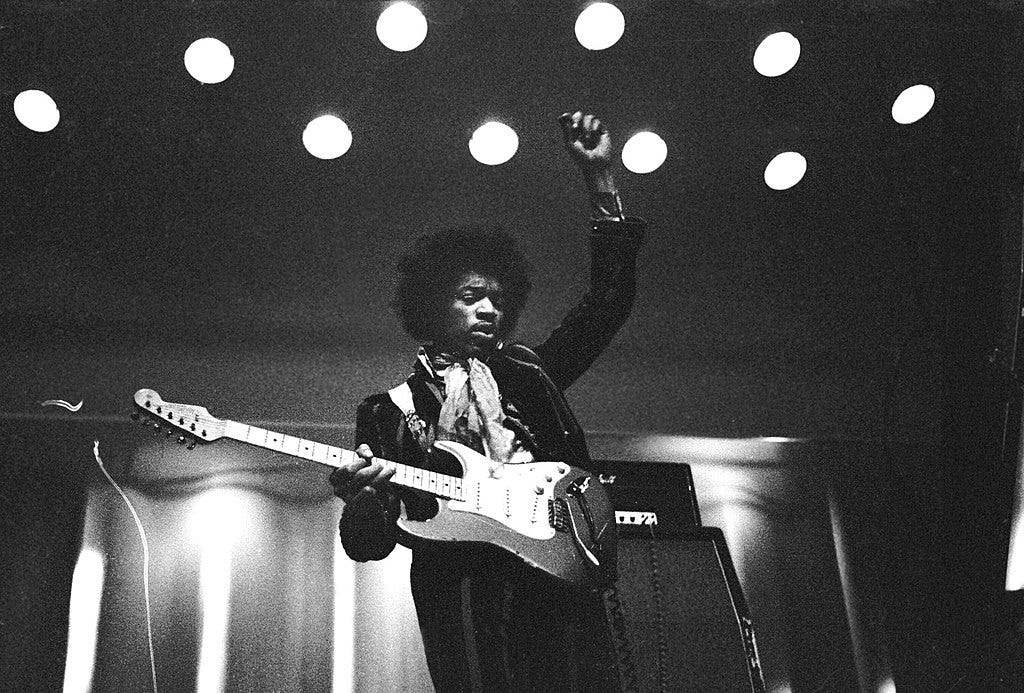
A Glimpse Back Into The Before Times
We’re finding out that the AI programs that are rolling out can’t really learn because they haven’t been “trained” on the real world, only the internet. Well, that’s true for kids, too.
In my teacher education program (1990s), we were taught some real gold-standard ideas for teaching: for example, Cooperative Learning and Critical Pedagogy were considered best practices. And Social and Emotional Learning was just coming on the scene. Could these be done poorly, or overdone? Absolutely. But, the idea was that the traditional lecture/note-taking mode shouldn’t be the entire ball game. Mix it up and move it out (ideally, out of the classroom1…or at least make it more project-based)!
Oh, and worst practices were covered, too. The ultimate Bad Teacher red flag? Un-facilitated media. Never, never, NEVER throw up a movie or game (y’know, just to fill up the hour) without context, or without a point.
We’ll be coming back to that.
But, c’mon Mark! Didn’t you ever do that? Just throw up a movie? Tell the truth!
Of course I did! There were plenty of times where I was faced with showing a movie or going mad. I chose the former. K-12 teaching is a tough, tough gig. On a weekly basis one of the teachers would be having something akin to an emotional crisis in the teachers’ lounge. Donuts would be consumed and tears would flow.2
Then along came the internet and computer labs—and schools were faced with new challenges. How to do help the students unleash the internet without it just being a complete distraction?
Here’s where I landed: Typically, if they stayed focused for roughly 50% traditional instruction (teacher-led, lively debate/discussion) and on point for 40% of task-oriented use of the tech (usually paired up or in groups), then they earned 10% of teacher-monitored [we had the ability to see their screens] solitary, fun-time on the internet (for me the missing 10% was administrative stuff at the end). If you do the math, that’s the last 5 to minutes at the end of class, which was always dicey when it came to student attention. So, I liked to pick my battles.
But the tech was supplemental and complimentary. You would not believe it now, but there was actually a significant proportion of the class that would use that last five minutes to look up something we’d discussed in class!
But that might’ve been the zenith. Here’s a quote from Leo, a baby boomer character complaining about the state of technology in 2004. This reflects a universal meme of both Boomers and Gen X-ers like me. From an episode of The West Wing:
Leo McGarry: My generation never got the future it was promised... Thirty-five years later, cars, air travel is exactly the same. We don't even have the Concorde anymore. Technology stopped.
Josh Lyman: The personal computer...
Leo McGarry: A more efficient delivery system for gossip and pornography?! Where's my jet pack, my colonies on the Moon?
Now it’s twenty years later than that. And not only have things not progressed (still no proverbial flying cars), but they’ve gotten worse! Bottom-line: Ed Tech (and algorithmic social media) has corresponded with lowering of test scores!
And it’s hard to find a teacher that says its been helpful with classroom discipline, either. Mostly they say their day is filled with nothing but head-butting with students to put away their phones!
Teachers, faced with classes filled with students addicted to their smartphones or (school issued) chrome-books—as a rearguard action, in order squeeze any kind of productivity out of the situation at all—resort to reversing the old formula. I’ve been told it goes something like this: for maybe 20% of the class, the teachers ask the students to use the tech to do their schoolwork, and in return the teacher looks the other way while they continue their dopamine habits using the screens for the other 80%. The numbers may vary, that’s as maybe it’s still a frog.
Besides school gossip and normal intra-student talk, curriculum has only become “interactive” to the extent that kids are interacting with algorithms (or randos, online)—and that 80% of the time that’s become the bulk of their school day? That’s the Un-faciliated Media we were warned about.
To make matters worse, there are those who preach that even the schoolwork, that 20% on-task, should largely be “student-led” (that is, using the internet or even—God help us—AI) to do the assignments.
And the ultimate irony? Engage in a debate with a Gen Z-er online (or one of the educators pushing for this model of “student-led” curriculum) and the basis of their argument boils down to how students should have bespoke learning based on their “Lived Experience”.
THE CM FILES, PART V: SORRY, BUT “LIVED EXPERIENCE” ONLINE IS NOT THE SAME AS “EXPERIENTIAL LEARNING”
This monologue is from the movie “Good Will Hunting” (1997):
Sean Maguire: “So if I asked you about art, you’d probably give me the skinny… on every art book ever written.
Michelangelo? You know a lot about him. Life’s work, political aspirations. Him and the pope. Sexual orientation. The whole works, right? I’ll bet you can’t tell me what it smells like in the Sistine Chapel. You never actually stood there and looked up at that beautiful ceiling. Seen that.
If I ask you about women, you’ll probably give me a syllabus of your personal favorites. You may have even been laid a few times. But you can’t tell me what it feels like to wake up next to a woman… and feel truly happy.
You’re a tough kid. I ask you about war, you’d probably throw Shakespeare at me, right? “Once more into the breach, dear friends.” But you’ve never been near one. You’ve never held your best friend’s head in your lap… and watch him gasp his last breath lookin’ to you for help.
If I asked you about love, you’d probably quote me a sonnet; but you’ve never looked at a woman and been totally vulnerable. Known someone that could level you with her eyes. Feelin’ like God put an angel on Earth just for you, who could rescue you from the depths of hell. And you wouldn’t know what it’s like to be her angel, to have that love for her be there forever. Through anything. Through cancer…”
Robin Williams’ character was talking to a grown (young) man—and a troubled one at that; but, I think of this speech whenever I hear educators try to put make their K-12 classrooms “student-led”.
As a strategem, it might work, if we were doing what (back in the 1990s) we used to call community-based learning—putting kids into real-world situations for them to learn important lessons in the real world. Or even in-class project-based learning, if it leads them to do some work outside the classroom in the real world to complete it. In those contexts, Experiential Learning (or “ExL”, another of those gold-standard ideas) has four steps: New Experiences, Reflection, Identify Newly Gained Knowledge, Use New Knowledge to Try More New Experiences. Rinse. Repeat. But, this is key: None of this is done in a vacuum.
It’s all best done within a cohort of other learners, and with guidance from a mentor/teacher. And it’s best done in the real world.
We’re finding out that the AI programs that are rolling out can’t really learn because they haven’t been trained on the real world, but only the internet. Well, that’s true for kids, too.
However, when we pair this approach with a screen-centric environment, it’s like some kind of cruel joke. In-school or out-of-school, they scroll through the void for…what? Three, five, seven, eight hours a day? And whatever psychic detritus left over from that dopamine-distraction treadmill is supposed to be “lived experience”?
MY LIVED EXPERIENCE WITH “LIVED EXPERIENCE”
My wife and I recently attended one of the appearances by Billy Joel on his latest tour. It was a wonderful show and Billy sounded great—but I can only say the latter because I’ve re-watched it on YouTube.
You see, we really couldn’t specifically hear Billy because the guy seated directly behind me sang along with the entire show…off-key and (mostly) off the beat. To make things a bit worse, he was a true fan! So, he knew most of the words. Even the deeper cuts! (I mean really, who knows the hell knows all the words to “Zanzibar”?).
My critical analysis? I couldn’t be sure if he was near blackout drunk or had no natural singing ability. Seemed like a bit of both.
But, despite it all, I didn’t say anything. First of all, this was the very definition of a ‘first-world’ complaint—look, life is short and we were still having a good time. But, more importantly, I let the guy go at it because I am a huge fan of singing, any singing, and if a person wants to sing they should sing. Hell, if I was in the audience for that same guy at karaoke, I’d be applauding him. So, I let it go.
You pays your money and you takes your chances…
But the point is, in that fella’s quote-unquote lived experience, I’m sure he would say he “sang along” with the show (very few people will belt out in public that badly unless they’ve achieved some sort of self-deception about it).
In the post “How Experience Can Hinder Critical Thinking”, Christoper Dwyer touches on some of these issues. There’s is the Dunning-Kruger effect where people tend to overestimate their own expertise in general, but also there is the tendency to, unless someone intervenes and actually teaches them critical thinking skills, they confuse their own experience with automatic expertise. Or to put it the way one of my Educators (who was a veteran teacher and superintendent) did: I’ve met teachers with 30 years’ experience, and I’ve met teachers with one year of experience, thirty times.”
Just the Facts, Ma’am
My other favorite real life encounters with lived experience were as an attorney. When I had my solo Family and Probate Law practice, I used to do free consultations. So, I’ve sat with literally thousands of people and had them explain their life situations for me. And—not to put too fine a point on it—but for nearly all of them, their own explanation of their situation (ie, their “lived experience”) never stood up to any kind of scrutiny.
Usually, being an attorney, I could get past their nonsense right there in the consultation. Other times, I would figure it out as I talked to others in their lives—their family/friends/associates, right? I mean, there are exceptions where people possess true objectivity about their situation; but, for they are the small minority. And usually that’s usually because they’ve already availed themselves of some sort of therapy or counseling.
I mean, this is largely why we have civil courts in the first place. Two people can have two different lived experiences with exactly the same incident.
So, what do human beings have instead of lived experience? Well, largely a “psychic soup” of self-serving narrative, unconscious motivation, eyewitness unreliability, motivated reasoning, or even the dynamic of staying in cycles of unhappy comfort zones. The technical term is “Co-Dependancy”.3
But, when people lives started migrating online, the algorithms started shaping their behaviors and attitudes with filter bubbles of increasingly extreme ideas presented by prestige-drivers (aka “influencers”).
So, now instead of institutions with experts, teachers, and parents curating information, we have the internet elevating people’s basest attitudes and exciting them to a fugue state…and then labeling that as their lived experience. This is even though it was all done virtually, online—and no actual (in real life) living was involved.
In other words, on social media, their psychic soup gets super-heated and starts boiling over.
Counterpoint
The arguments for Lived Experience are obvious and largely correct. Empathy (although a vital skill for individuals and society, and likely the ultimate solution to societal divides) cannot fully stand in the place of actually experiencing something. For example, someone who has worked as a Nurse has been exposed to nuances about the healthcare industry situation that others can’t imagine. Or only someone who actually has a child can fully appreciate what being a parent is like (No, Madam De JeJune, your loyal Chow Chow puppy, while being a vital and wonderful relationship in your life, isn’t a true child-substitute—at least that’s what your pediatrician will tell you). And, of course, people who are experiencing discrimination of any kind are having a unique experience that no one else should assume they understand.
But, the reverse is also true. That is to say, not everyone who is a person of color is experiencing the same thing: Groups are not monoliths who all live life exactly the same way, feeling exactly the same thing. And that person online arguing with you based on their “life experience”? Well, that’s just their life experience. It’s not necessarily anyone else’s.
Also, there’s perceived discrimination. In the movie “Coded Bias” , they make reference to research that shows that, while, yes, black people feel the most discriminated against. The only other group that feels even close to that (rightly or wrongly) are older, overweight, white women (mysogyny, agism + weight discrimination, with maybe a touch of backlash against so-called ‘woke’ anti-white sentiment?). The research study can be found here.
In other words, (Yikes!) the “Karen” phenomenon is real. Just like the political reaction we’re seeing from young men, it is something to consider as new coalitions are built during these troubling times where we’re watching a new techno-fascism openly on the march, and so…
…Let’s Not Lose Our Common-Sense (Or Our Sense of Humor)
As Saturday Night Live’s 50th Anniversary show approaches, let’s cleanse our palates with a wonderful skit that seems to capture the moment with regards to tech and education pretty well.
I’m personally a fan of the notion that there is a common humanity that we all share. We have more in common than (post-)modern internet culture would have us believe. I know that’s fallen out of favor...but, some chilling ice-chips of frozen shared humanity isn’t a bad way to cool down the psychic soup, sometimes.
Or, sure, I could have spun around and slugged that singing guy at the concert. I could’ve made him the villain in my ‘lived experience’! It’s perfect! After all, he was ruining my show! I paid for that!
Then I could’ve been typing this from a jail cell…No, I’m going to go with the shared humanity approach.
Bottom-line: I learned more from going to the concert that you have reading about it online. I wish you many wonderful IRL experiences in the coming year!
If you could manage to move it out of the classroom entirely (one special education school I worked at had local businesses and nonprofits that would offer lessons during weekly field-trips. Like the students were getting glimpses into their future…since those were the organizations that were dealing in cutting-edge tech and cutting-edge real-world issues (respectively). The entire process was called Experiential Learning. But none of this was student-led, per se’. A lot of organizing and coordination had to take place between the school and the partnering orgs.
Which is just one of many reasons that giving guns to teachers in schools is a stupid idea. But, I digress…
On co-dependency: check out this website if you, throughout your life, have felt trapped in situations that seem to be the repeat of your previous experiences—whether it be relationships or jobs, whatever), I also recommend this book to help guide you. You are not alone.





